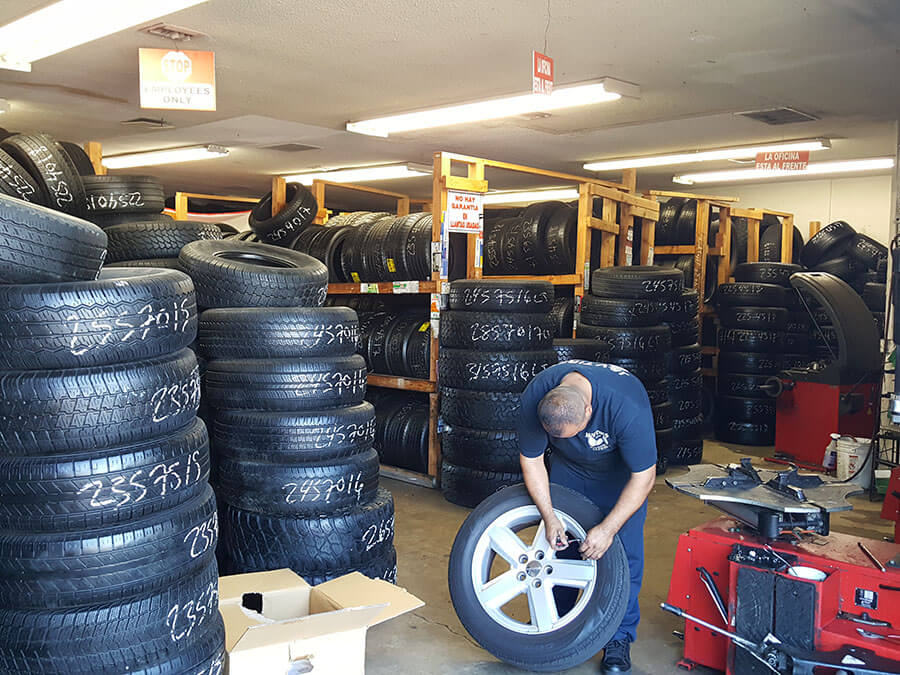Costs Tires Morris IL: High Quality Products for All Makes and Designs
Costs Tires Morris IL: High Quality Products for All Makes and Designs
Blog Article
Tire Service: The Effect of Climate Condition
When it comes to ensuring ideal efficiency and safety and security when traveling, recognizing the impact of weather on tire solution is essential. From scorching warmth to icy roads, each weather aspect can dramatically affect tire performance and total driving experience. By diving into the impacts of differing weather on tires, drivers can acquire useful insights that might enhance their lorry's efficiency and longevity. In this discussion, we will certainly check out the elaborate partnership in between weather and tire solution, shedding light on the value of weather-specific tire maintenance practices and considerations.
Warm and Tire Performance
When exposed to high temperatures, tires experience changes in performance that can significantly influence automobile security and handling. The warm produced from extended driving or hot weather condition problems triggers the tire rubber to soften, resulting in minimized step life and enhanced wear. As the rubber ends up being softer, the tire's grasp when traveling lessens, affecting stopping distances and total traction. In extreme cases, extreme warm can even create tire blowouts, presenting a serious security danger to the car and its owners.
Moreover, high temperature levels can accelerate the procedure of tire aging, causing the rubber to degrade more quickly. To mitigate the impacts of warmth on tire efficiency, drivers must consistently inspect their tire pressure, rotate tires to ensure also put on, and evaluate for any indicators of damage.
Cold Climate Impacts
Winter conditions can have a substantial effect on tire efficiency and safety and security. As temperatures decline, tire rubber can solidify, resulting in lowered traction on icy or snow-covered roadways. In chilly climate, tires may likewise shed air stress a lot more rapidly, which can impact handling and fuel performance. Additionally, cool temperature levels can cause tire sidewalls to tense, increasing the risk of damages from potholes or various other road hazards.
To mitigate the effects of winter on tires, it is vital to consistently check tire stress and inflate them to the supplier's suggested levels. Utilizing winter or all-season tires designed for winter problems can additionally enhance grip and grasp on icy or snowy roads - discount tires morris il. Correct tire upkeep, including routine evaluations for wear and damages, comes to be also more essential during cooler months to make sure optimal efficiency and security
Rainy Conditions Influence
Throughout stormy conditions, tire efficiency and safety can be substantially affected by the damp roadway surfaces and reduced presence. The walk pattern of tires plays a critical role in preserving traction on damp roads. Tires with damaged click here to find out more treads are more prone to hydroplaning, where a layer of water develops between the roadway and the tire surface, leading to loss of grip. To battle this, motorists must routinely evaluate their tires for appropriate step depth and take into consideration investing in tires particularly made for damp problems.

Snow and Tire Safety And Security
When driving in snowy problems, having the best tires can make a substantial difference in safety and efficiency. Winter tires are created with special rubber substances and tread patterns to provide much better traction on snow and ice contrasted to all-season tires.
Along with making use of winter tires, it is critical to ensure they are correctly pumped up. Winter can trigger tire pressure to go down, affecting grip and handling (tires morris il). Frequently inspecting and maintaining the right tire stress is important for optimal efficiency in snowy conditions

Weather-Related Tire Upkeep
Weather-related tire maintenance incorporates a variety of techniques aimed at making sure ideal tire function and long life in various climate situations. One vital aspect of weather-related tire maintenance is tire stress law. Checking tire tread consistently and replacing tires when step wear gets to a specific deepness is vital for maintaining traction and stability in negative weather.
Conclusion
To conclude, weather problems have a substantial influence on tire performance and safety and security. From warm influencing tire stress and put on to cold climate reducing traction, it is vital to take into consideration the weather when preserving and making use of tires. Rainy problems can lower grasp and cause hydroplaning, while snow can increase the threat of crashes if tires are not correctly outfitted. Weather-related tire upkeep is critical in ensuring ideal performance and security on the roads.
In this conversation, we will certainly explore the detailed connection between weather conditions and tire solution, dropping light on the value of weather-specific tire upkeep methods and factors to consider.

Report this page